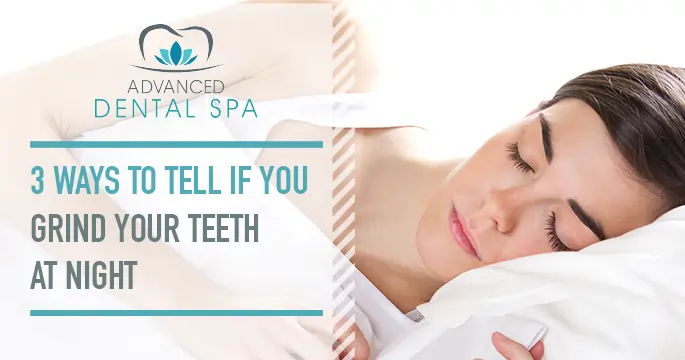Realising that you grind your teeth at night can be a bit of a challenge as you are not awake for when it is happening.
Teeth grinding is more formally known as ‘bruxism’ and is the habit of grinding and clenching the teeth, in this case when you are asleep. There are lots of reasons why you might be grinding your teeth including stress, drug use, illness or even dehydration but if you suspect you might be grinding your teeth at night, the best thing to do is to consult the dentist.
But how would you know if you’re grinding your teeth at night? Here are our three tips to aid you in figuring it out.
1. Pain
If you grind your teeth at night, your muscles are strained and this can result in you suffering from neck pain, facial or jaw pain, teeth pain or even earaches. If you wake up with a headache most mornings or any upper body ache, it could be from teeth grinding as the movement irritates all the other muscles around your jaw.
If you’ve recently noticed your teeth become more sensitive, this might be from the grinding as well. The inside of your mouth can also be a tell-tale sign, for example if you notice that you’ve bitten your cheek or tongue during the night, this could be from clenching. If you find that you have trouble sleeping, this could also be caused by the tension in your jaw.
2. Ask If Others Can Hear You
Teeth grinding can at times be extremely loud and as it’s on going, it could wake up your sleeping partner or even someone in the room next to you. It’s an obvious way to tell you grind your teeth if others can hear you. And if your partner does wake up from it, get them to nudge you a little so that you can awake and try to relax your jaw as well.
3. Your Teeth Can Fit Together Like A Jigsaw Puzzle
If you have been grinding your teeth for a while now but aren’t aware of it, take a look at your actual teeth themselves. Do they look any shorter than usual? If you move your jaw around in certain ways, can you fit your teeth together as if it were a jigsaw puzzle? Are any of your teeth looking worn down or chipped? If you have fillings or crowns inspect them as well, are they still intact? If you notice anything slightly off, consult with your dentist as soon as you can.
Other signs can include feeling anxious at night or constantly feeling achy in the mornings. If you find you might be experiencing any of these symptoms, it’s best to consult the dentist as teeth grinding can lead to extreme dental problems if it isn’t diagnosed early. And as most people have very mild symptoms, it’s important to take these symptoms seriously.
After all getting a plate or mouthguard to protect your teeth is far less expensive than having to restore your whole smile. If you think you’re grinding your teeth at night, don’t hesitate to book a consultation with us today.





